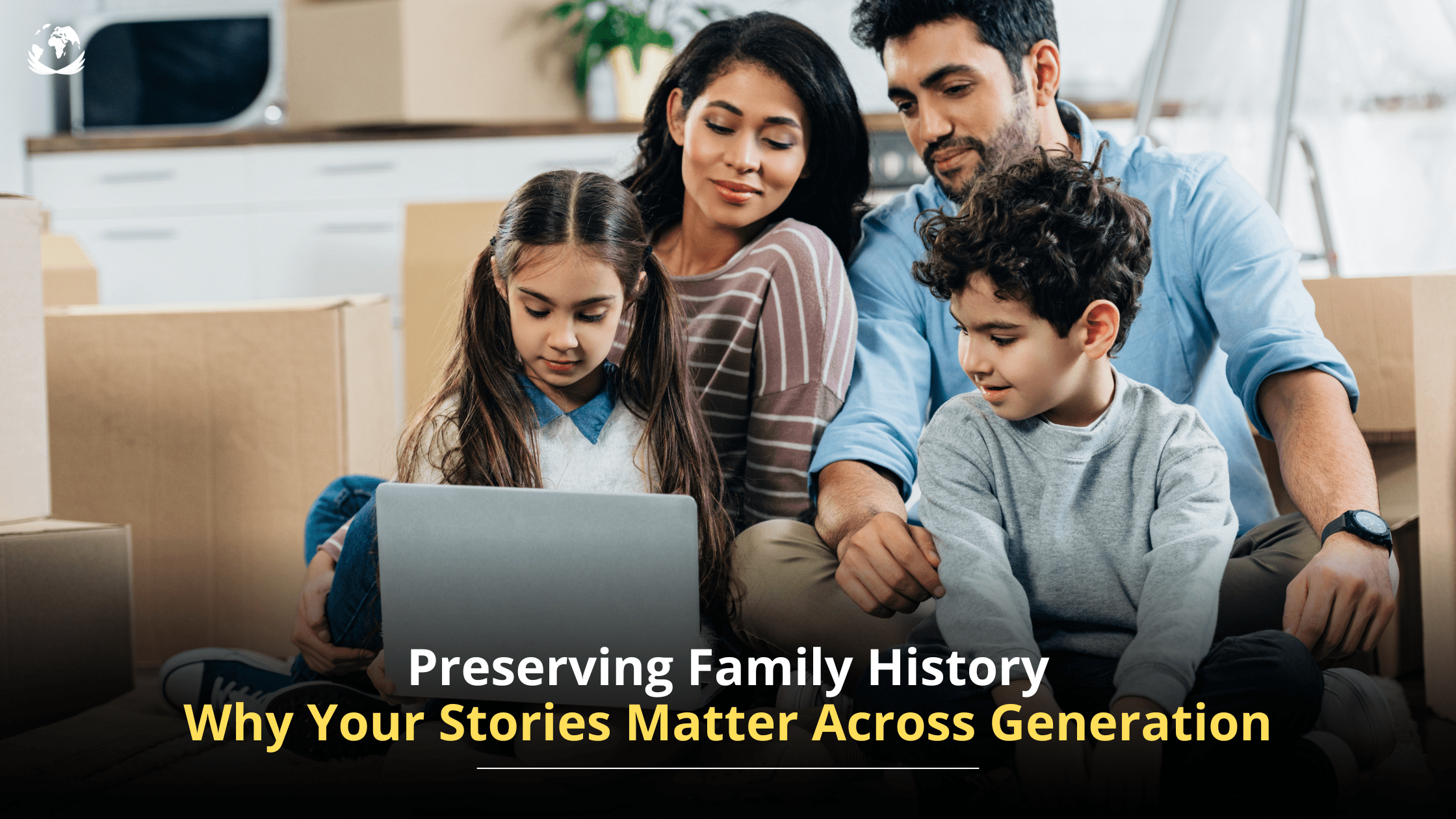Preserving Family History: Why Your Stories Matter Across Generations
“Hey Dad, what was it like when you were a little kid, to visit your grandparents’ farm in Canada? Did they ever talk about life in Ireland?” Like most of us whose parents or grandparents have left this world, I frequently find myself regretting not having asked them a question that only one of those relatives could answer. I have so many questions, like, I want to know if my great-grandfather spoke with an Irish brogue and did he ever talk about his journey, leaving Ireland, as a young teenager, with 5 or 6 other young siblings, but no parents, across the sea to a new life in Canada. And I want to know what it was like to live in the Great Hunger in Ireland that they left behind. And, I want to know what took his own son, Alfred, from Canada to Detroit. I want to know what happened to my father’s older brother Jack who died before my father was born. I want to know what my paternal grandmother was like. She died the year after I was born. I want to know why is it that my father’s mother looks distinctly African American in a photograph of her as a young woman. I want to know what my mother’s father was like. I have only the faintest of memories of him. I want to know all about how he lost his considerable fortunes in the Depression of the 1930s and how he struggled afterwards, never getting back on his feet. I want to know about my mother’s mother’s love of horseback riding. I understand she raced sulkies and I want to know more about that. Were there other women in harness racing? I want to know what it was like to be sent off as a child to live with relatives in West Virginia and what her life was like before she left Virginia’s eastern shore - Matthew’s County - before her mother and siblings died. I want to know what it felt like to retire from a work life that was so vital to my father. I want to know what it felt like to be told he had Alzheimers. I want to know what it felt like to send a son off to Viet Nam. I want to know what it was like for my mother to be so busy with so many children and why it was so difficult for her to enjoy them once they got to be feeling more independent and weren’t just cuddly warm bundles, albeit cuddly warm bundles constantly in need of diaper changes. And how did all of that feel to a woman of significant intellect and a college education when a college education was still somewhat of a rarity for women.
We all have questions we wished we had asked but there is no one to ask. The answers to all of these questions are lost and offer only conjecture. They are left to the imagination. Some answers might be gleaned from photographs or maybe some letters. That is all in the realm of maybe but unlikely. What is certain is that we can still get answers from people we have near and dear. Our living friends and relatives are available to answer our questions, to share stories, to listen to our stories. We are here and able to inform each other about life as we experience it and as we see it. Once we are gone, all of that knowledge goes with us.
So, share your stories. Tell your children about your life as a child. Tell them what it was like before there were computers or cell phones. Tell your children about listening to the radio or when you first got a color tv. Tell your children about Black Jack chewing gum. Tell them about what it was like when everyone was allowed to smoke anywhere. Tell them what games you played as a child.Tell them what it was like before disposable diapers or when children were free to run all over the neighborhood without their parents. Tell them what it was like when airplane travel was a special, even rather luxurious event, for which one would dress well. Tell your children about seeing Star Wars for the first time. Or watching Neil Armstrong step onto the moon, live with friends and family all sitting rapt watching on television. Tell your children what it felt like to see President Kennedy assassinated, or the World Trade Center collapse. Tell them what it was like to have to use a Colored Only water fountain, or to not be allowed in some establishment because of your race. Tell your children what it was like to have the freedom over your own body. Tell your children. Even better, write these stories down so that your children’s children will be able to read them and they will be able to see a little bit of the world through your eyes and your words.
Your stories matter. Your parents’ stories matter. They matter to your children, to you and to the world.
Jean McGavin
Founder,
History Chip

